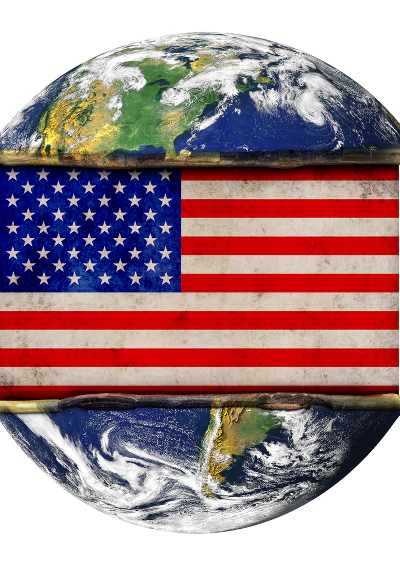U.S. Message to the BRICS: No More Mr. Nice Guy
Is “soft power” just a friendlier-sounding way for the United States to dominate the world?
November 9, 2011

As a general proposition, it is refreshing to hear an American talk about “soft power.” Especially outside U.S. borders, in “old” Europe and the “new” emerging markets, hope inevitably rises that the United States is finally wising up. People there have long been befuddled by the United States’ penchant over the past decade to focus on the military (“hard” power) dimension of competition.
That inclination, after all, seemed to run counter to the great American talent — and the nation’s foundational belief, counseled by none other than George Washington — to focus on mutually beneficial, commercial relations. America, in other words, was that enlightened upstart that would make its mark by not obsessing about status and rank in the world, as 18th- and 19th-century Europeans were always wont to do. All would be fine, as long as dollars would be rolling in.
With that historical background in mind, great disappointment sets in when one realizes that the very architect of the outwardly so appealing concept of U.S. soft power, Joe Nye, the former Dean of Harvard’s Kennedy School of Government, apparently did not at all intend it as such. His emphasis, clearly, is on the “power” dimension of the term he created, not the “soft” part.
To this otherwise very genteel gentleman, soft power apparently is just another way of demanding obedience. Examining the BRICS recently — Brazil, Russia, India, China and South Africa — Professor Nye published an article in the Wall Street Journal headlined “Another Overhyped Challenge to U.S. Power.” Considering that article headlines are usually crafted by newspaper editors, let’s not assume these particular words were chosen by Mr. Nye.
But these words are definitely his: The BRICS “should be seen as a locus for critics to occasionally tweak the tail feathers of the eagle.” The message could hardly be more direct. It is basically saying: Emerging markets, don’t tread on me, mighty America. You aren’t as much as an ant.
Harsh words for a man who otherwise embodies learning and gentility. In the body of his analysis, Mr. Nye did what, regrettably, has become the usual American thing — berating other nations and telling them why they are not what they are cracked up to be.
Among that list of BRICS countries, one can certainly question Russia’s inclusion. But to focus across the board on putting everybody else into their supposedly proper, lowly place is hardly what represents smart — and encouraging — management of one’s international relations.
Mind you, it is not that these nations, representatives of the long overdue and to-be-welcomed rebalancing of the world order, have actively thrown down any gauntlet to the United States. In fact, unlike the United States as of late, most of these five nations, in the effort to advance their own economies and societies further, have very much focused on improving their domestic performance in all sorts of policy areas.
Hence, Mr. Nye’s analytical, but take-no-prisoners outburst entirely misses his intended target. The BRICS aren’t focused on trying, as he imagines they do, to “tweak the tail feathers of the eagle.” Rather, they feel a need to take on additional responsibilities in a world where the United States increasingly acts, more often than is advisable, not just as the lone man out, but as one that is derelict in the execution even of its most vital home affairs.
Given the size and continuing prominence of the United States on the world stage, this has very negative consequences for managing the international system. One would have expected that a true systems thinker like Harvard’s Joe Nye would have isolated exactly that risk at this time — and pointed the accusatory finger back home, rather than entirely neglecting the home front and pointing the finger elsewhere.
Americans across the board would do well to realize that, as much as they may want to, they themselves are no longer in any position to clip the BRICS’ nations’ wings. The forces of economic dynamism and of population size just aren’t such.
Americans should know that fact of life better than anybody else — for it describes the very method of the United States’ inexorable rise vis-à-vis the old powers of Europe a century ago. So for leading American thinkers to regale themselves in the image of these nations, at best, tweaking the tail feathers of the American eagle is nothing short of absurd.
Takeaways
To this otherwise very genteel gentleman, soft power apparently is just another way of demanding obedience.
Americans across the board would do well to realize that they are no longer in any position to clip the BRICS' nations' wings.
Mr. Nye did what has become the usual American thing — berating other nations and telling them why they are not what they are cracked up to be.
